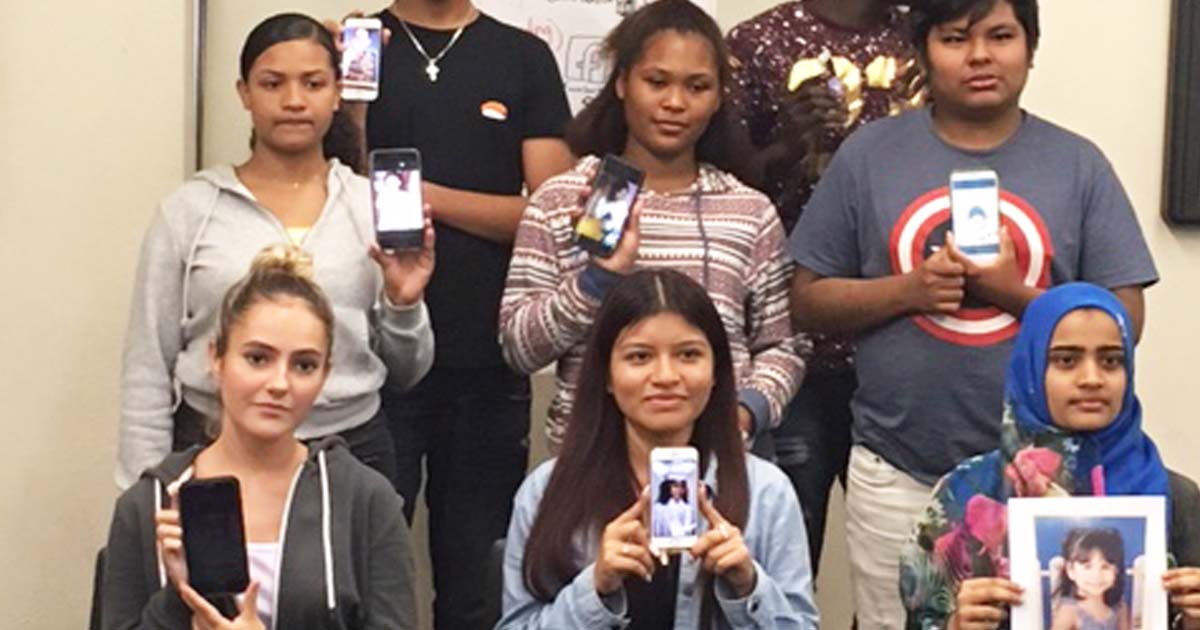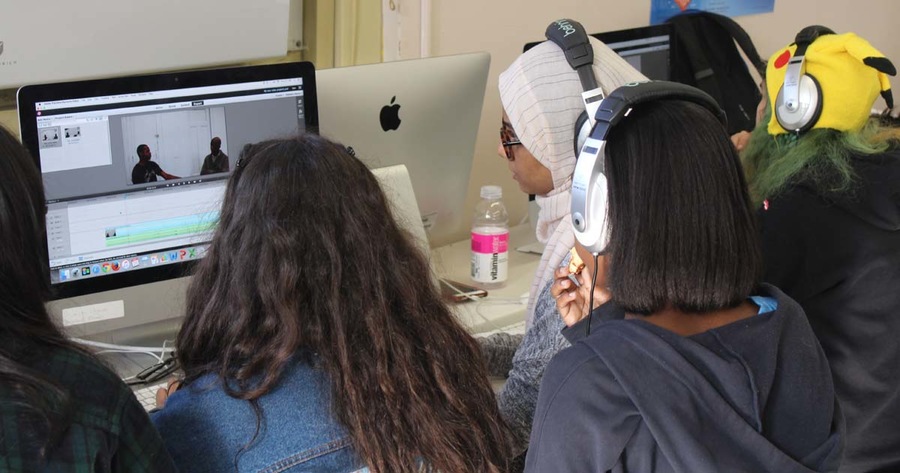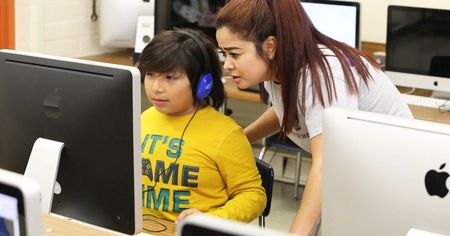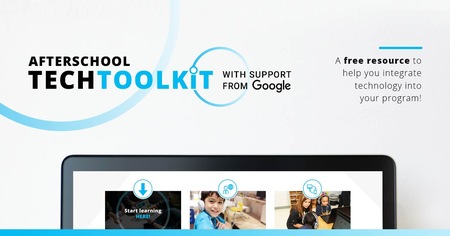This past summer, a group of youth producers enrolled in the Educational Video Center's (EVC) New Media Arts program through Bronx Community College CollegeNOW First Year Seminar, witnessed the power of learning digital arts skills through the process of creating their website project about a social issue. The students collectively chose a topic then engaged in research and video production activities that helped shape their website. This approach validated their experiences and knowledge and amplified their voices by providing a platform to share their stories.
Toli, a recent immigrant from Bangladesh, participated in the program and reflects, "I learned so many things this semester in New Media Arts Workshop, including how to edit photos with Adobe Photoshop, edit video with Adobe Premiere Pro and design a website. Web design was something I always wanted to do, but the lack of confidence stopped me from doing it. I often thought only professional people are able to own a website. Having joined EVC's New Media Arts workshop, I discovered tons of countless things that most youth would wish to learn."

Through EVC's project-based approach, students learn by doing. They engage in media production from day one. Real learning happens through mini group assignments that ultimately contribute to their youth-produced website. In the first week, via DSLR camera and Adobe Photoshop, students learned to shoot and edit professional-style bio photos for the youth producer page of their website. They learned about video production, conducting street interviews with community members and interviewing a university professor for expert perspective on causes of violent behavior. The footage was used in their remix video, embedded in their website.
EVC Instructors provided scaffolded lessons, building upon students' knowledge and prior work. Through each mini-assignment's reflective component, students collectively discussed successes and how to improve during future media production opportunities.
Creating the website encouraged Toli to work on other social justice projects. She wants to start a project at her school, addressing discrimination some Muslim women face. The New Media Arts program allowed her to explore the digital arts field and inspired her to want to make a film about the hibjab some Muslim women wear, addressing misconceptions.
"The program could be called a turning point in my life, because now I can think big," Toli said.
For EVC, the Afterschool Tech Toolkit has provided key guiding questions that encouraged the program to reflect on its practices and ensure they "walk our talk" for example, around working toward equity through digital learning.
The EVC's student-centered pedagogy is a great example of how other afterschool programs might utilize the Afterschool Tech Toolkit to intentionally incorporate students' experiences and perspectives into their digital learning programs—layering lessons to meet students where they are and build upon their knowledge and experience.
About the Educational Video Center
The Educational Video Center is a New York City-based nonprofit youth media organization dedicated to teaching media arts to develop artistic, critical literacy and career skills of young people, to nurture their idealism and commitment to social change.
About the Afterschool Tech Toolkit
The National AfterSchool Association released the Afterschool Tech Toolkit with support from Google, in 2018. The free, modular toolkit aims to maximize technology-based learning in afterschool, with an emphasis on ensuring all students have equitable access to high-quality digital learning opportunities in out-of-school time.





